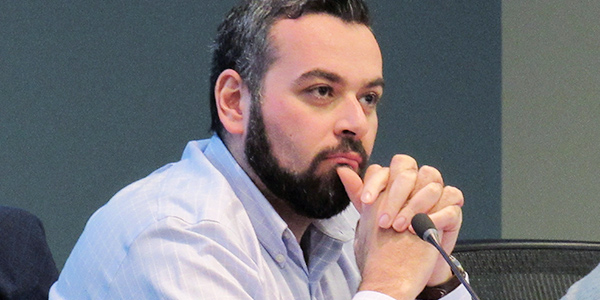By Amanda Durish Cook
CARMEL, Ind. — A new team considering sequencing parts of MISO’s transmission planning with network upgrades identified in generator interconnection studies held its second meeting Wednesday, with stakeholders outlining the issues they hope to have addressed.
Upcoming discussions of the RTO’s Coordinated Planning Process Task Team (CPPTT) could result in strategies to lower the increasing costs generation developers are facing for network upgrades.
The task team is MISO and stakeholders’ response to complaints from the Environmental and Other Stakeholder Groups sector and others that renewable growth is being hindered by increasingly expensive upgrades. (See Renewables Group Calls for MISO West Tx Construction.)
Several stakeholders have called for the RTO to more closely align its studies that identify network upgrades for the interconnection queue with its annual Transmission Expansion Plan (MTEP) so that transmission that facilitates new renewable output isn’t borne exclusively by generation developers.
The team’s tentative mission is to identify “potential coordination and consistency issues” between MISO’s generator interconnection and MTEP processes.
MISO Manager of Resource Interconnection Arash Ghodsian promised that the team will examine the timing and methodology of the different studies under the interconnection queue and MTEP. “Where can we gain some efficiencies? Where can we gain some consistency?” he told stakeholders. He said the goal is to find the best transmission solutions that can meet a variety of purposes.
Clean Grid Alliance’s Natalie McIntire said the interconnection queue and the MTEP process should share assumptions so that it’s not a race to see which party will foot the bill of a transmission project. “We don’t want to have the timing of the studies determine who pays for the project. Right now, whatever study finishes first determines who pays. That seems to us to be an important principle here. We should have a better process to determine the beneficiaries,” McIntire said.
However, MISO Director of Planning Jeff Webb said it’s impractical to expect the RTO would be able to apply the same set of assumptions to every type of planning study. “It doesn’t make sense. It’s too prescriptive,” Webb said.
McIntire said that interconnection customers are discovering that the costs of network upgrades are “more than the capital costs” of the generation projects themselves.
“I don’t think anyone believes that these several million to $1 billion major upgrades are going to be paid for by interconnection customers,” EDF Renewable Energy Interconnection Manager Anton Ptak said.
He also said MISO “is just at the beginning” of seeing its utilities dramatically alter their fuel mixes and argued that it should identity the beneficiaries beyond the interconnection customer of such expensive upgrades.
“Once upon a time, we were ordered to do cost allocations for generator interconnections instead of the direct assignment approach,” Webb pointed out, noting that MISO has returned to assigning costs directly to interconnection customers and ignoring other beneficiaries. About 14 years ago, the RTO used a 50/50 cost sharing of network upgrades between interconnection customers and load in corresponding transmission pricing zones, with the zonal half collected like baseline reliability projects were, through a blend of 20% postage stamp and 80% sub-regional allocation. To be eligible for the cost sharing, interconnection customers had to become MISO network resources or have proof of a one-year power purchase agreement.
The Union of Concerned Scientists’ Sam Gomberg said MISO should strive to end the “free ridership” of beneficiaries. “Those seem like principles that we should be able to get behind,” Gomberg told attendees.
Great River Energy’s Mike Steckelberg suggested MISO consider creating a transmission project market, where multiple parties can bid in to share project costs.
MISO stakeholders are encouraged to send more issues for the task team to consider through Jan. 2. The CPPTT will hold another a meeting in mid-January.





